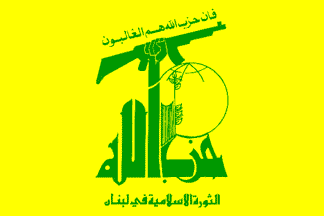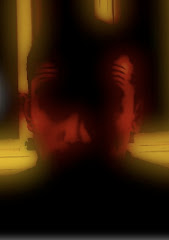Over the past two years Lebanon has seen a surge in the number of political assassinations. The targets have all been members of the "March 14" anti-Syrian coalition and, with exception of ex-PM Rafiq Hariri, Christians from the Metn area.
The question is on most people's minds is: who is doing the killing and how can they be linked back to the Syrian Baath regime who is trying to retake Lebanon after their ignominious departure following the Hariri bombing.
Before delving further I'll state my first hypothesis: That the actors who carried out the Hariri assassination, while they be linked to, are not the same actors who killed the other politicians and journalists after that assassination.
Why? The Hariri assassination was from an operational point of view much more complicated, riskier and bigger than the ones following it.
Hariri spent a fortune on security. He had several heavily armored cars with identical license plates, signal jammers and a whole host of other high tech equipment along with a full complement of trusted bodyguards. Killing him needed coordination between a large group of people, a huge amount of explosives, technical expertise, heavy surveillance and possibly a suicide bomber. The following assassinations (like the one of Pierre Gemayel this week) have been much smaller and simpler affairs. For example: a small, pre-assembled under a car seat or a simple shooting of an unarmored car.
The Hariri assassination required operational planning on a military scale - hence I suspect that the Syrian secret police was directly involved. Circumstantial evidence points in that direction too with a truck that was used in the bombing had crossed over from Syria in the few days previous to the bombing.
The other assassination could be carried by very small cells with little training. They are completely different in character and execution.
Onto the suspects: Iranian Islamic Revolutionary Guard (Pasdaran)
Iranian Islamic Revolutionary Guard (Pasdaran)
The Iranian contact to Hezbollah providing training and equipment. The elite of the Islamic regime in Iran.
Highly unlikely. They do not really operate outside of the Shiite areas and therefore have little contact with the Christian and Sunni communities. They try to keep as low a profile as possible and getting involved in the day-to-day operations against the March 14 group would risk blowing their cover. Their main focus tends to be Israel and America anyway.
Syrian Intelligence (aka Mukhabarat)
There is no real doubt that they have been involved on some level. They probably pick the targets and without doubt provide the material (bombs and guns) but are most likely not directly involved in the killings. They pass them off to a Lebanese sub-contractor under control and tutelage. The reason for this is simple: plausible deniability. If Lebanese get caught Syria can still deny any involvement; that would be impossible if a Syrian was caught. Additionally most of the big bombings and killings in Lebanon during the past thirty years have been carried out by Lebanese (and mostly with the backing of outside powers).
-The US Embassy and marine barracks bombing - carried out by the Mughniyeh cell, the nucleus of what would later become Hezbollah with help from Syria and Iran.
-The attempted killing of Shiite cleric Fadlallah - carried out by a Christian militia with backing of the US.
-I could go on... but why bother... lots of killing and mostly by Lebanese.
Possible subcontractors:
Lebanese Intelligence
The probability of this is next to zero. After the fall of the pro-Syrian government they are no longer trusted with such sensitive missions. Many top figures from the service were indicted for serious crimes relating to the Hariri murder; a high price to pay and one that would probably not be paid twice. While the Lebanese intelligence has been stuffed with many Syrian sympathizers over the years it contains many who have contacts with March 14 coalition. So while parts of it still carry out surveillance and such on behalf of the Syrians they won't be asked to do any of the killing. Amal
Amal
The smaller of the two pro-Syrian Shiite parties. Led by speaker of the house Nabih Berri. Receives support from Syria and Iran but on an order of magnitude less than Hezbollah.
This party is barely hanging on. It has positioned itself as the "moderate" pro-Syrian party, acting as a buffer between Hezbollah and the other parties. This position is coming very difficult to hold as the strain between Hezbollah and the other parties increases (as it does with every assassination). The killing of opponents does not strengthen the party but weakens it. Additionally their military wing is all but defunct and they never possessed any serious special operations capabilities. Hezbollah
Hezbollah
Biggest Shiite party. Founded in the 1980s under Iranian tutelage. Fought Israel for 20 years and is the only Arab force ever to force an Israeli pullback without negotiation (in 2000). Currently trying to topple the government and force fresh elections or, forgoing that, have veto power over all cabinet decisions. Biggest armed group in Lebanon and one of the biggest employers in the country.
Definitely have the motive and the means. They are trying to topple the government and every dead minister brings them closer to that goal. They have special operations capabilities (through training and armament by the Pasdaran). That said, while they may have advanced knowledge of the assassinations I'm no longer sure they really play a part in them. First of all, the discovery of a Hezbollah role in political assassinations would immediately spark a civil war something Hezbollah does not want (at least right now). And second of all, Hezbollah has zero presence in the communities and areas where the assassinations are taking place. A car full of young Shiites driving around in Sin-il-Fil (where Pierre Gemayel was killed) would attract quite a bit of attention in these tense times. Also the people who killed Gemayel knew his schedule and security precautions inside and out. This suggests long term surveillance - knowing which route he takes, which car he's in (he switched cars frequently), what his schedule is like. This kind of surveillance needs an unseen presence in these heavily Christian areas. Hezbollah does not have such a presence. Also the killing of Pierre Gemayel has hurt Hezbollah (for now), robbing them of their political momentum and forcing them to temporarily cancel street protests.
General Aoun
Christian ex-General in the Lebanese army. Spent the Civil War fighting against the Syrians and their allies. Recently returned from exile and has recast himself as a pro-resistance Hezbollah ally in a bid to become the next President.
Does have a large presence in the Christian communities of the Metn. But while the killing of anti-Syrian Christian politicians eliminates his rivals it, on balance, does not help him. After the news of Gemayel's death pictures of Aoun were burnt in the streets and his name cursed in Christian neighborhoods where he previously enjoyed some support. He is now in an impossible position of having to back the Syrians and Hezbollah while at the same time condemning actions that help them (and eliminate his sworn enemies). Has been seriously damaged by the events of the past few days. Highly unlikely that he would approve of the Gemayel assassination. Also, after such a long absence from the country and the destruction of his military forces in 1990 he no longer controls a serious armed group capable of carrying out political murders. Below you'll find a video of his posters being burned in East Beirut. Syrian Nationalist Socialist Party (SSNP)
Syrian Nationalist Socialist Party (SSNP)
A Lebanese political party (despite the name). Has almost non-existent public support. Founded in the thirties, in modern times has become an extension of the Syrian regime in Lebanon. Has a very strong relationship with Syrian intelligence. Most of its members are part of the Greek Orthodox sect. Before the Cedar Revolution controlled various ministries through cabinet appointments and had deputies in the parliament. No longer present on any level in the Lebanese government - a big loser in the Cedar Revolution. The similarities in name and insignia to the Nazi party are not coincidental - the SSNP was modeled after it.
For the past years has basically been an extension of the Syrian intelligence apparatus. Has a history of being involved in the cloak-and-dagger world of political assassination (for example the killing of president-elect Bashir Gemayel in 1982 - Pierre's uncle). Its members have a strong motivation to bring Lebanon back into Syria's sphere of influence; not only it that their stated ideology of the party but it would return them to power and prominence. The party also - through Syrian training - maintains a shadow force of surveillance personnel, intimidators and the like. Additionally they are present in most of the heavily Christian areas (being Greek Orthodox Christians themselves for the most part and are based out of the Metn area) and could move around without too much suspicion. Also many of the assassin's targets have been Greek Orthodox:
Anti-Syrian politician George Hawi, ex-head to the Communist party - killed by a car bomb.
Anti Syrian journalist and politician Gibran Tueni - killed by a car bomb.
Anti-Syrian journalist Samir Qasir - killed by a car bomb.
All this leads to an obvious conclusion: the SSNP and its operatives are by far the most likely suspects in the wave of assassinations against Christian leaders.
Thursday, November 23, 2006
J'accuse - Who's doing the killing in Lebanon?
Subscribe to:
Post Comments (Atom)



No comments:
Post a Comment